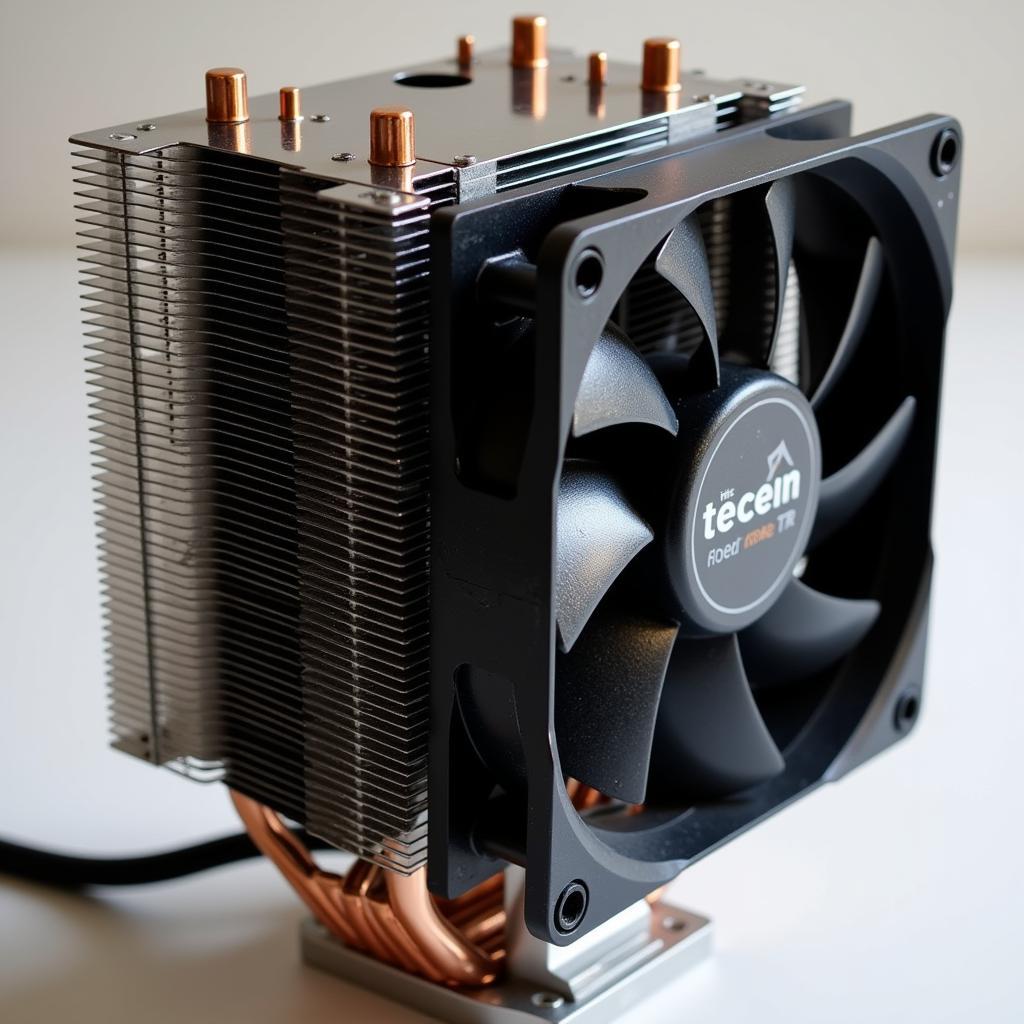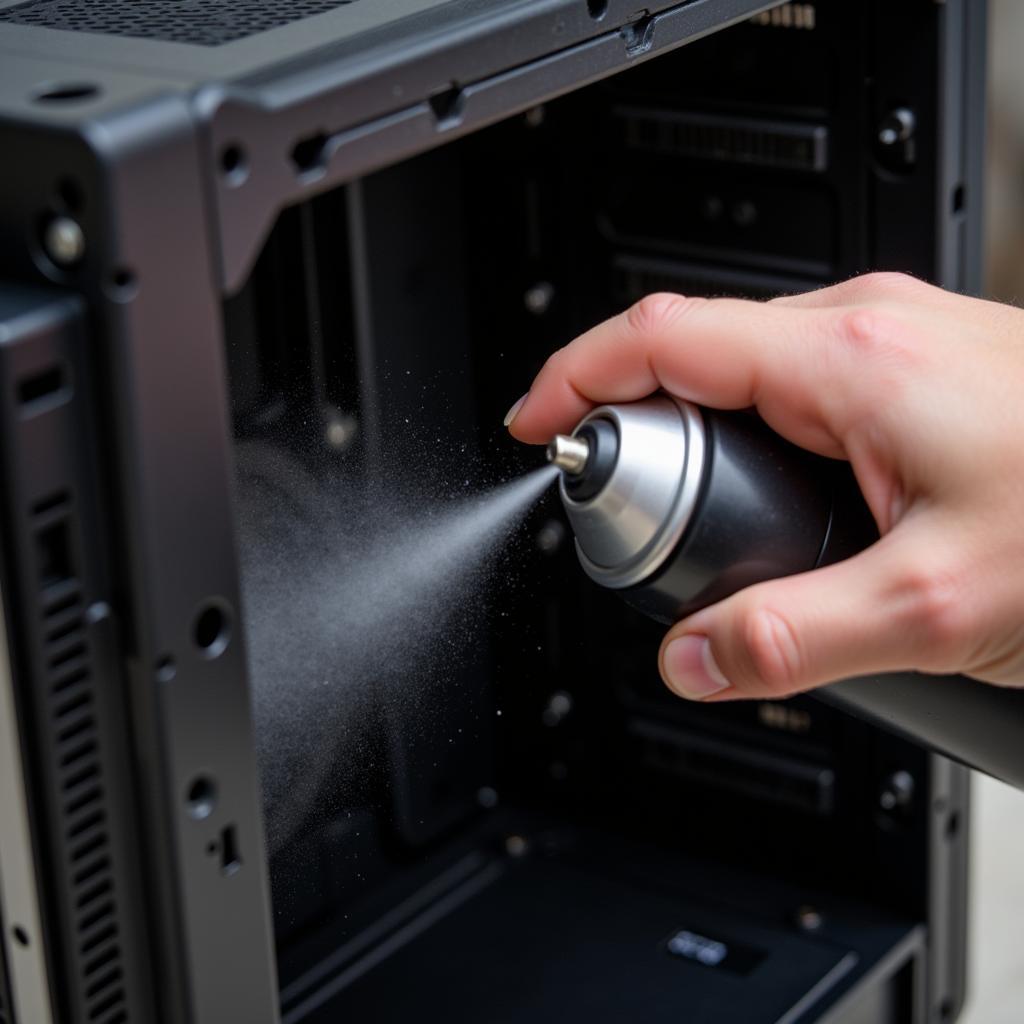Reducing PC fan speed is crucial for a quieter computing experience. Excessive fan noise can be distracting and even irritating, especially during quiet tasks like reading or watching movies. This guide will delve into various methods to effectively control and lower your PC’s fan speed, ensuring a more peaceful and productive environment.
Understanding PC Fan Noise and its Causes
Before we dive into solutions, let’s understand why PC fans spin up in the first place. Your computer generates heat, and fans are the primary cooling mechanism to prevent overheating. The faster they spin, the more air they move, and the cooler your components stay. However, this increased airflow comes at the cost of increased noise. Common culprits for high fan speeds include demanding applications, high ambient temperatures, and dust buildup.
Software Solutions for PC Fan Control
Several software solutions allow you to manage your fan speeds directly. These programs provide interfaces to adjust fan curves, set custom profiles, and even link fan speeds to specific temperature thresholds.
BIOS Settings for Fan Control
Your computer’s BIOS (Basic Input/Output System) often provides basic fan control options. Accessing the BIOS usually involves pressing a specific key (like Del, F2, or F12) during startup. Within the BIOS, you might find options to adjust fan curves or set fixed fan speeds.
Third-Party Fan Control Software
Numerous third-party applications offer more advanced fan control features than the BIOS. Popular choices include SpeedFan, Argus Monitor, and FanControl. These programs allow you to create custom fan profiles tailored to your specific needs, optimizing for both cooling performance and noise levels.
Hardware Solutions for Reducing Fan Noise
While software offers a great deal of control, hardware modifications can also significantly impact fan noise.
Cleaning Your PC and Fans
Dust accumulation restricts airflow, forcing fans to work harder and spin faster. Regularly cleaning your PC, especially the fans and heatsinks, can dramatically reduce fan noise. Use compressed air to remove dust from fan blades and other components.
Applying Thermal Paste
Thermal paste facilitates heat transfer between the CPU and the heatsink. Over time, thermal paste can dry out, reducing its effectiveness. Reapplying fresh thermal paste can improve cooling efficiency, potentially allowing your fans to run at lower speeds.
Upgrading Your CPU Cooler
The stock CPU cooler that comes with many PCs is often designed for basic cooling and can be quite noisy. Upgrading to a more robust aftermarket cooler, such as an air cooler with a larger heatsink or a liquid cooler, can significantly improve cooling performance and reduce fan noise.
 Hardware Upgrades for Reducing PC Fan Noise
Hardware Upgrades for Reducing PC Fan Noise
Optimizing Your PC for Lower Fan Speeds
Beyond direct fan control, optimizing your PC’s overall performance can indirectly reduce fan speeds.
Closing Unnecessary Background Applications
Running numerous applications simultaneously consumes resources and generates heat, leading to increased fan speeds. Close any unnecessary programs running in the background to minimize system load and heat generation.
Managing Game Settings
Demanding games often push your PC to its limits, resulting in higher fan speeds. Adjusting in-game graphics settings, such as lowering resolution or disabling demanding effects, can reduce the load on your system and consequently lower fan speeds.
Conclusion
Reducing PC fan speed is achievable through a combination of software and hardware approaches. By understanding the underlying causes of fan noise and implementing the strategies outlined in this guide, you can create a quieter and more enjoyable computing experience. Remember, a balanced approach that prioritizes both cooling performance and noise reduction is key. Don’t let excessive fan noise disrupt your focus; take control of your PC’s acoustics and enjoy the silence.
FAQs
-
Why is my PC fan so loud? Dust buildup, demanding applications, and high ambient temperatures are common causes.
-
Is it safe to manually control fan speeds? Yes, but be cautious not to set speeds too low, which could lead to overheating.
-
How often should I clean my PC? Ideally, every 3-6 months, depending on your environment.
-
What is the best fan control software? Several excellent options exist, including SpeedFan, Argus Monitor, and FanControl. The best choice depends on your specific needs and preferences.
-
Will a new CPU cooler make a big difference? A high-quality cooler can significantly improve cooling and reduce fan noise.
 Cleaning PC Fans for Reduced Noise
Cleaning PC Fans for Reduced Noise
For any further assistance, please contact us at Phone Number: 0903426737, Email: fansbongda@gmail.com Or visit us at: Tổ 9, Khu 6, Phường Giếng Đáy, Thành Phố Hạ Long, Giếng Đáy, Hạ Long, Quảng Ninh, Việt Nam. We have a 24/7 customer support team.


